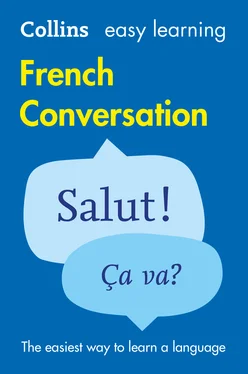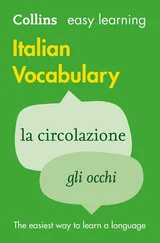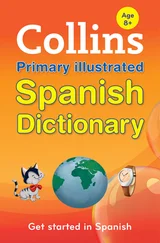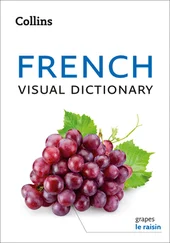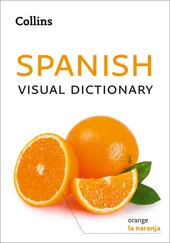Here are some key phrases which you are likely to hear in conversation.
| Vous êtes déjà allé à Lille? |
Have you ever been to Lille? |
| Vous restez combien de temps à Rouen? |
How long are you staying in Rouen? |
| Ça vous plaît, Rouen? |
How do you like Rouen? |
| Vous apprenez le français depuis combien de temps? |
How long have you been learning French? |
| Ça va, tu arrives à suivre? |
Are you following the conversation? |
| Vous parlez bien français. |
Your French is very good. |
| Est-ce que je parle trop vite? |
Am I speaking too fast? |
| Vous préférez que je parle anglais? |
Would you prefer it if I spoke English? |
| Vous voulez que je répète? |
Would you like me to say it again? |
| Vous voulez que je parle moins vite? |
Do you want me to speak more slowly? |
| Tu peux me tutoyer. |
You can call me tu. |
| On se tutoie? |
Shall we call each other tu? |
| Vous êtes marié? |
Are you married? |
| Vous avez des enfants? |
Have you got any children? |
| Tu viens souvent ici? |
Do you come here often? |
Lifestyle Tips
• The polite you (vous)is used to address people whom you don’t know. It’s also a way of showing respect to someone who’s older than you, or, at work, to someone who’s higher up in the hierarchy. People who work together on a daily basis usually say tuto each other, (se tutoyer– to say tu to each other ) but it is safer to wait a little before taking that step. Many people do not like to be addressed as vous,because they think it’s too formal. They will usually suggest you call them tu,saying tu peux me tutoyeror on peut se tutoyer.You can make the first move and ask On se tutoie?,if you think that the other person will be more comfortable using the tuform.
• When meeting someone for the first time, you usually shake hands (serrer la main à quelqu’un),whether it’s a man or a woman. In business relations, at business appointments or at negotiations, shaking hands is very common. Men who are on friendly terms usually shake hands, while women kiss on both cheeks (se faire la bise).Men also kiss female friends and in some cases other men, for instance when they belong to the same family. Bear in mind that habits may be different depending on where you are in France, which is why French people themselves often get confused; for instance, the number of kisses you give someone to say hello varies from one area to another!
• The words amiand copain(and the feminine forms amieand copine) can either mean friend or boyfriend/girlfriend . If someone uses mon copainfor instance, they could be either be talking about a male friend or their boyfriend. The expressions petit(e) ami(e)and petit(e) copain/copinecan also be used to mean boyfriend and girlfriend . To say my partner , use mon compagnonfor a man and ma compagnefor a woman.
• French people socialize in cafés and restaurants as British people do, but it is probably more common in France than in Britain to invite people, be it for coffee (pour prendre le café),for the apéritif (pour prendre l’apéritifor, more informally l’apéro)or for dinner (pour le dîner).Traditionally, le caféor l’apéritifare ways of getting to know people more, while le dîner(and lunch, le déjeuner)are an opportunity for people who already know each other well, or families, to spend time together.
Getting there
Bon voyage! – Have a good trip!
If you’re going to be travelling to and around French-speaking countries and cities, the phrases in this unit will help you ask for directions, find out how to get to places and buy tickets in easy, everyday French.
When you’re travelling around, you will probably want to talk about what you’re going to do. Use je vais( I’m going to ) or on va( we’re going to ) before the verb. These come from the verb aller.For more information on aller,see here.
| Je vaispasser une journée à Avignon. |
I’m going tospend a day in Avignon. |
| Je vaisprendre le train de sept heures. |
I’m going totake the seven o’clock train. |
| On vapasser deux nuits à Argelès. |
We’re going tospend two nights in Argelès. |
| Ensuite, on vaaller à Grenoble. |
Then we’re going togo to Grenoble. |
| Normalement, on vad’abord à Strasbourg. |
If all goes well, we’ll be goingto Strasbourg first. |
BON À SAVOIR!
Use normalementor si tout va bien( if all goes well ) at the beginning of a sentence to talk about a plan that might have to be changed.
| Je vaist’emmener à la gare. |
I’lltake you to the station. |
| Ne t’en fais pas, je vaisprendre le bus. |
Don’t worry, I’llget the bus. |
| On vat’appeler un taxi. |
We’llcall you a taxi. |
| On vavenir te chercher à la gare. |
We’llcome and pick you up at the railway station. |
If you want to talk about what your plans are, you can use j’ai l’intention de( I’m planning to ).
| J’ai l’intention delouer une voiture. |
I’m planning tohire a car. |
| J’ai l’intention d’aller au Maroc. |
I’m planning togo to Morocco. |
| On a l’intention desuivre la route côtière. |
We’re planning todrive along the coast. |
| Je comptepasser deux jours à Santiago. |
I intend tospend two days in Santiago. |
| J’espèrealler en Alsace cette année. |
I hope togo to Alsace this year. |
| J’espèrevoir la Bibliothèque François Mitterrand. |
I hope tosee the François Mitterrand Library. |
| On espèrepouvoir tout visiter. |
We hopewe can visit everything. |
SAYING WHAT YOU HAVE TO DO
If you want to say that you have to do something in French, such as buy a ticket, catch a train and so on, you use il faut que( I have to ) or il faudrait que( I ought to ) followed by the subjunctive. For more information on the subjunctive, see here.
Читать дальше
